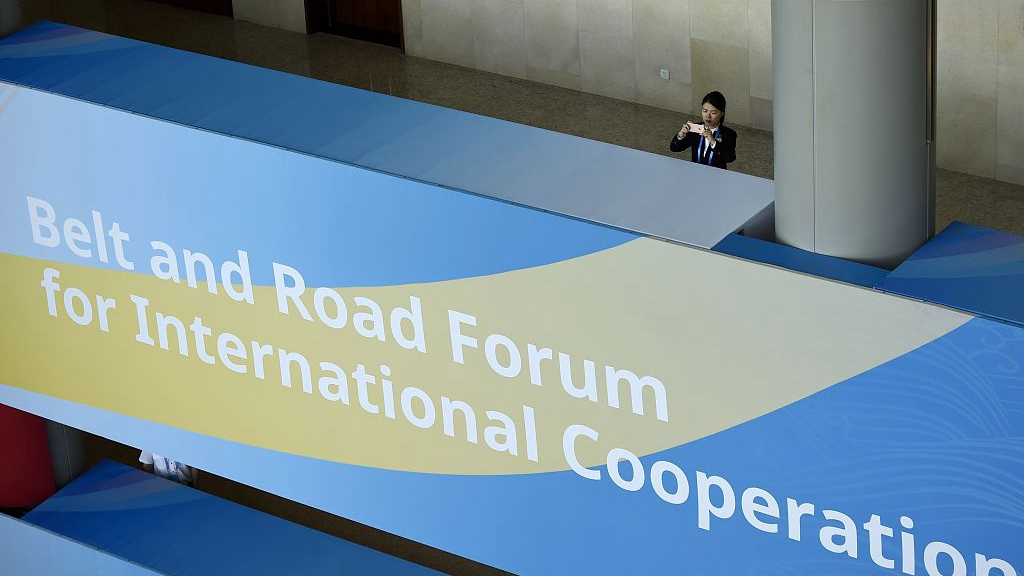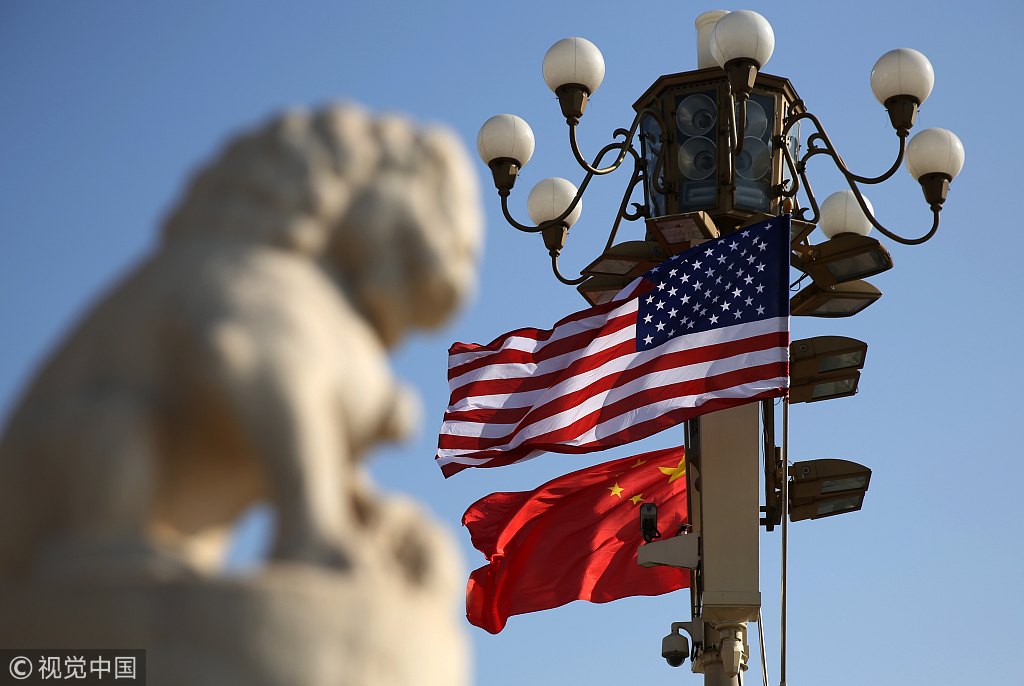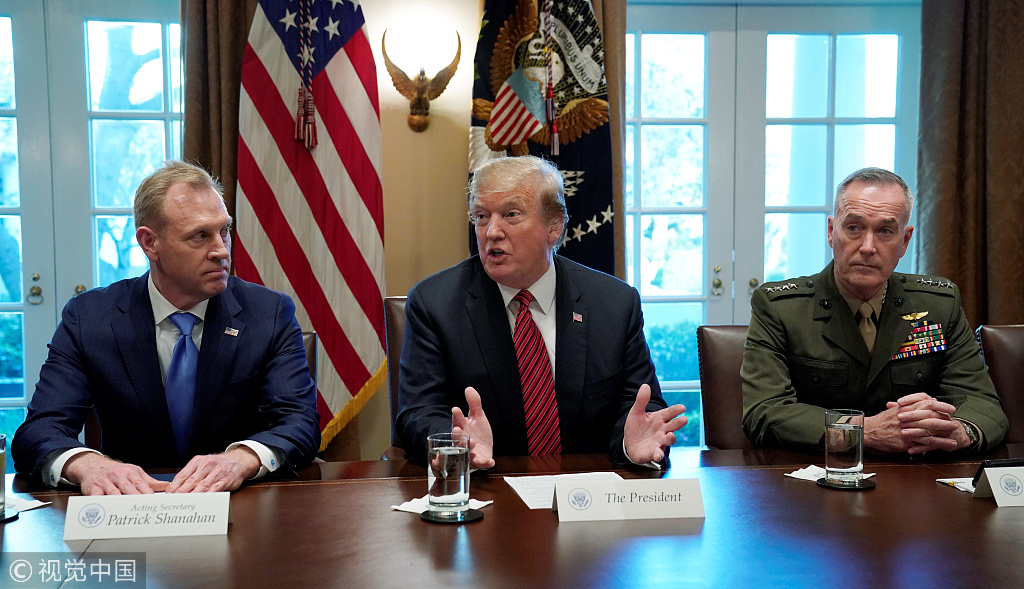
Opinion
12:21, 04-Apr-2019
America has failed to understand the popularity of BRI
Updated
15:19, 04-Apr-2019
Tom Fowdy

Editor's note: Tom Fowdy is a British political and international relations analyst and a graduate of Durham and Oxford Universities who writes on topics pertaining to China, the DPRK, Britain and the U.S. The article reflects the author's opinion, and not necessarily the views of CGTN.
The United States Department of State announced this week that it would be sending no high-level officials to the 2nd Belt and Road Forum for International Cooperation in Beijing this month, instead of producing a public statement criticizing the project.
The American bid to snub event follows the attendance of senior White House official for Asia Matt Pottinger at the previous forum in 2017. Despite America's self-exclusion, world leaders of up to 40 countries are anticipated to attend the summit, including several U.S. allies.
Throughout the past year, Washington has considerably upped its public criticism of the Belt and Road Initiative (BRI) and voiced disapproval towards countries who have opted to join it, the most recent being Italy.
However, one thing is clear. The United States fails to comprehend or acknowledge the broader interest of the international community in participating in the BRI, unable to even convince its longstanding allies to keep their distance.
In isolating itself and formulating no strategy nor incentives in providing an alternative, the United States risks finding itself increasingly irrelevant in the shifting global economy. In essence, its president's bid to pursue geopolitical competition against China whilst advocating “America First” protectionism represents contradictory positions which are putting the U.S. at odds with the world at large.
The United States has struggled to come to terms with why countries are endorsing the BRI in growing numbers, as well as to why attempts to scare participants away from it are falling on deaf ears.

National flags of China and the U.S. /VCG Photo
National flags of China and the U.S. /VCG Photo
It refuses to see how there is an enormous global imbalance in economic development which is influencing the economic incentives of many countries. Washington has dominated an economic order which has been without a doubt the most prosperous in history, but it has also been one that has been deeply imbalanced.
The shift of the global economy in the 1970s and 1980s to neoliberal concentrated the majority of the world's wealth within the developed world, largely within private hands, and in preaching the supremacy of the open market, hindered its distribution.
The forced “opening up” of countries to a global market brought about devastation in Eastern Europe, Latin America and Africa. Local industries were depleted, jobs were lost and many countries would either spiral into total decline or become locked in a “middle-income trap” unable to progress.
For these regions of the world, BRI is a new opportunity. Far from the clichéd “debt trap diplomacy” as America attempts to simplify it, the initiative offers the chance for these less developed regions of the world to experience large-scale investment and thus a distribution of wealth to which the existing economic order, led by the United States, is not providing.
In essence, the U.S. contribution to global prosperity should be praised but it has fallen short of meeting the needs of many countries. That is why BRI is perceived as a game changer and in turn, that is why Washington's attacks on the project are falling on deaf ears even in countries close to the United States.
Given this, America is not providing these countries with any competing options. Instead, the Trump administration is pursuing a policy of inwardness and protectionism in the name of “America First” which in fact pours scorn on the very idea of multilateral shared economic development.
One can only note how the administration has torn into existing trade agreements or even ended them, slapped tariffs on countries, withdrawn aid and demanded one-sided concessions. Trump doesn't want to give, he wants to take.

Acting Defense Secretary Patrick Shanahan (L) and Chairman of the Joint Chiefs of Staff Gen. Joseph Dunford (R) listen as U.S. President Donald Trump addresses a meeting with senior military leaders in Washington, DC., April 3, 2019. /VCG Photo
Acting Defense Secretary Patrick Shanahan (L) and Chairman of the Joint Chiefs of Staff Gen. Joseph Dunford (R) listen as U.S. President Donald Trump addresses a meeting with senior military leaders in Washington, DC., April 3, 2019. /VCG Photo
It's not about how the United States can benefit other countries, it is strictly about how other countries can benefit the United States. In doing so, his administration is isolating America.
This ultimately comes at the degradation of the administration's other goal of wanting to engage in “geopolitical competition” with Beijing. How can the United States “compete” with China if it is not even prepared to approach the needs of developing nations in the world and address global economic imbalances?
The trade war itself has been an effort to uphold America's own neo-liberal economic order, yet in that, it fails to recognize that the rest of the world, through development projects such as BRI is, in fact, moving away from it. This is why attempts to threaten and talk countries out of the project have literally yielded no results at all.
All in all, if the United States wishes to remain a dominant player in the global economy in the future, then it cannot afford to ignore, dismiss and sit on the sidelines against the BRI.
It has to acknowledge the global trend, it has to acknowledge that the status quo has not benefited many regions of the world as much as it could have and in turn, countries are vouching for development in the name of their own national interests. No amount of scaremongering or protectionism can change this. Therefore, Washington has a clear choice between joining in or being left behind.
(If you want to contribute and have specific expertise, please contact us at opinions@cgtn.com.)

SITEMAP
Copyright © 2018 CGTN. Beijing ICP prepared NO.16065310-3
Copyright © 2018 CGTN. Beijing ICP prepared NO.16065310-3